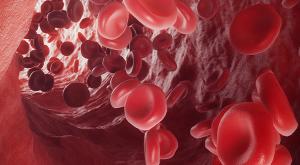What is Lymphoma
What is Lymphoma - Lymphoma refers to a deadly cancer of your lymphatic system, including the spleen, glands, bone marrow, and lymph nodes (lymph glands).
What is Lymphoma – Lymphoma refers to a deadly cancer of your lymphatic system, including the spleen, glands, bone marrow, and lymph nodes (lymph glands). Lymphoma affects all of these areas alongside other organs of your body. i.e., affecting an integral part of your body’s overall germ-fighting network. In this article we attempt to discuss lymphoma cancer in a broad sense and try to make sense of Lymphoma.
In fact, since this cancer resides within your lymph system, it quickly metastasizes and expands to various tissues/organs in your body. Typically, it spreads to your lungs or liver. While it’s possible to develop lymphoma at any change, it is common among children and young adults ranging from 15 to 24. Here we find out what lymphoma is, its signs and symptoms, causes, and risk factors:
What is Lymphoma?
The lymphatic system refers to a series of lymph vessels and nodes moving lymph fluid within your body. This fluid contains several cells combating diseases by capturing viruses and bacteria.
The lymph system plays an integral role in upkeeping your body’s immune system; however, lymph cells may become cancerous. Cancer occurring in your lymph system is known as lymphomas. Researches and doctors reveal that there are more than 70 cancer types known as lymphomas.
These are further divided into two main categories; non-Hodgkin’s lymphoma and Hodgkin’s lymphoma. It may affect any area of your lymphatic system, such as:
- Lymph nodes
- Spleen
- Bone Marrow
- Thymus
- Tonsils
What are the Causes of Lymphoma?
While the cause of lymphoma is yet to be found, this cancer kickstarts when an infection-fighting white blood cell (lymphocyte) develops a severe genetic mutation. The mutation commands the WBC to multiply rapidly, thus increasing the number of diseased lymphocytes rapidly.
This unfortunate mutation also enhances the lifespan of the cells. These cells can continue living for prolonged periods, leading to an accumulation of diseased lymphocytes in your lymph nodes. In turn, your lymph nodes, liver, and spleen end up swelling.
What are the Signs and Symptoms?
The symptoms of lymphoma resemble the symptoms of certain viral diseases. However, unlike the common cold and other viral infections, lymphoma lasts for a prolonged time.
Some patients who have lymphoma may not notice any symptoms; however, others may experience swelling. The swelling may occur in lymph nodes across your body, including your groin, armpits, neck, and abdomen.
The swelling often lacks pain and may start becoming painful as enlarged plans put pressure on other organs, bones, and so on. Often people confuse the symptoms of lymphoma with back pain. This overlap of symptoms may lead to a misdiagnosis.
Therefore, you should consult a doctor if you experience any of the following symptoms:
- Persistent fever without an infection
- Fever, night sweats, and chills
- Weight loss
- A reduced appetite
- Pain in the lymph nodes upon consuming alcohol
- Unusual itching
- Shortness of breath
- Persistent coughing
- Pain/swelling in your abdomen
What are the Risk Factors of Lymphoma?
The risk factors of lymphoma include:
- Age- Lymphoma commonly occurs in children and young adults. However, certain types of lymphoma occur in children and young adults
- Sex-Males are more likely to develop lymphoma
- An Impaired Immune System- People with immune system diseases or those taking drugs that decrease the performance of their immune system are more susceptible to lymphoma
- Chemicals and Radiations- Nuclear radiations, as well as some agricultural chemicals, are known to cause Non-Hodgkin lymphoma
- Infectious Mononucleosis- Epstein-Barr virus is known to lead to mononucleosis. It, in turn, increases your risks of developing lymphoma
The Diagnostic Criteria of Lymphoma
Lymphoma does not boast any screenings. Therefore, if you experience persistent symptoms resembling the symptoms of viral diseases, consider seeking medical help.
The doctor may question your family medical history to determine the exact cause and severity of your condition. In addition, they will conduct an in-depth physical examination where they inspect your neck, chin, groin, abdomen, and armpits to spot any swelling.
Lastly, your medical consultant may seek signs of infections in your lymph nodes to rule out the cause of the swelling.
To Sum it Up
By understanding what lymphoma is, it has become easier for people to identify the symptoms. Luckily, this type of cancer is often treatable. Typically the treatment plan for lymphoma depends on the type of lymphoma you’re suffering from and its severity. Your treatment plan may involve immunotherapy, chemotherapy, a bone marrow transplant, medications, and a combination of different treatments. We also have included important information about Stage 4 Lymphoma that will help a cancer patient navigate these tough waters.
There’s a chance the treatment plan may result in specific side effects. In case that happens, you should consider discussing it with your medical team to relieve symptoms. At the same time, you should ask your doctor about necessary changes to your diet and exercise plans to make you feel better.
Specific exercises like walking, swimming, and so on can help reduce nausea and fatigue occurring due to radiation and chemo. In addition, you can try alternative therapies like guided imagery, meditation, and biofeedback to lower pain levels.
Related Content
 When Others say Your Own Thoughts About Cancer Aloud
When Others say Your Own Thoughts About Cancer AloudMay 21st 2025
 Expert Explains Lymphoma After Dave Coulier's Diagnosis
Expert Explains Lymphoma After Dave Coulier's DiagnosisDecember 4th 2024
 Breyzani Benefits Previously Treated SLL, CLL
Breyzani Benefits Previously Treated SLL, CLLJuly 12th 2023
 What Is CAR-T Cell Therapy, and What Can Patients With Cancer Expect?
What Is CAR-T Cell Therapy, and What Can Patients With Cancer Expect?September 16th 2022
 Targeted Therapies Shake up the DLBCL Treatment Paradigm, Expert Says
Targeted Therapies Shake up the DLBCL Treatment Paradigm, Expert SaysFebruary 25th 2022
View additional resources on CureToday.com



